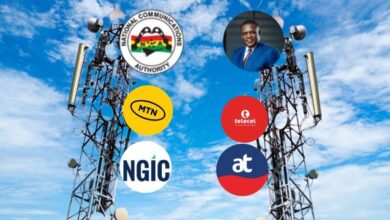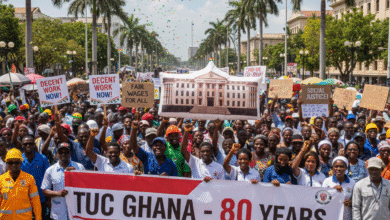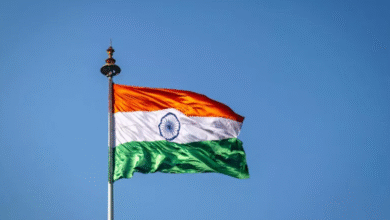Empowering Citizens Through Inclusive Data to End FGM
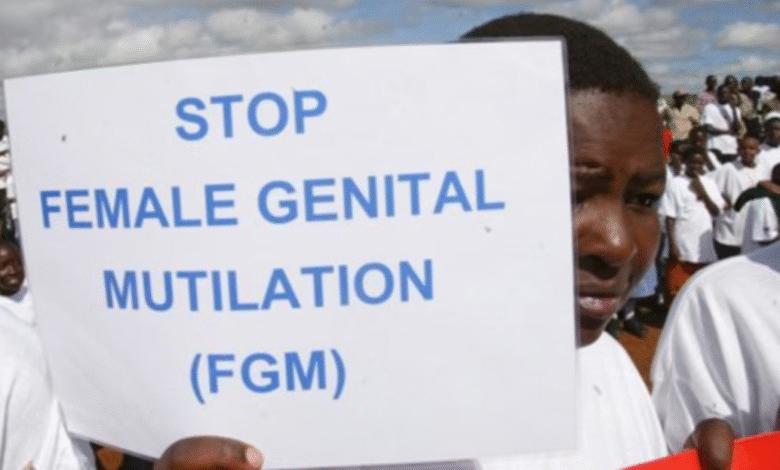
Empowering Citizens Through Inclusive Data to End FGM” emphasizes amplifying community voices and lived experiences, especially of women and girls, in data generation and decision-making. Inclusive data reveals hidden realities, guides culturally sensitive interventions, and empowers citizens as change agents, strengthening advocacy, accountability, and collective action to accelerate ending FGM for future generations.
The “Make Inclusive Data the Norm (MIDN)” Peer Learning Exchange presents a transformative opportunity for reflection, collaboration, and coordinated action. The MIDN work is funded by APC-Colombia and implemented by the GPSDD and it brings together three countries, namely; Ghana, Kenya and Colombia to share and learn about making Inclusive data the norm.
By convening governments, National Statistical Offices (NSOs), civil society, academia, media, and development partners, this South–South initiative seeks to embed inclusivity in how data is generated, interpreted, and applied to advance sustainable development. For Ghana, the exchange is especially timely as it coincides with ongoing efforts to apply citizen-generated data (CGD) to address one of the country’s most sensitive challenges: Female Genital Mutilation (FGM) in the Upper West, Upper East, and Bono East regions.
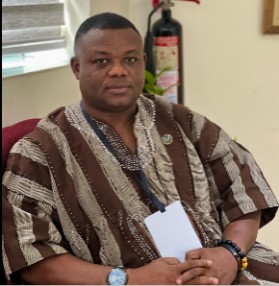
Although FGM has been outlawed in Ghana, it continues to persist in certain communities, shielded by cultural traditions and secrecy. Conventional data collection methods often fail to capture the hidden nature of the practice, limiting the effectiveness of interventions. Through the MIDN initiative, Ghana is pioneering CGD as a way to collect localized, timely, and community-driven evidence. Once completed, this initiative promises to provide a stronger foundation for targeted policies and advocacy to eliminate FGM, while also serving as a test case for how inclusive data approaches can reshape development planning more broadly.
Governments and NSOs
The Ghana Statistical Service (GSS) and relevant government ministries plays a central role in validating and integrating CGD into national statistical systems. Their responsibility is to establish standards that harmonize CGD with official statistics, ensuring both credibility and complementarity. More importantly, government must act on the evidence produced—designing interventions tailored to the realities of affected regions, strengthening law enforcement, expanding sensitization programs, and enhancing educational campaigns. Ministries responsible for gender, health, and education will need to champion responses that move beyond national averages to reflect the lived experiences of vulnerable communities.
Civil Society Organizations (CSOs)
CSOs and NGOs are vital to building trust and engaging directly with communities. Their role extends beyond data collection to ensuring that findings are culturally appropriate and accurately reflect community perspectives. In future phases, CSOs will facilitate community dialogues, return findings to citizens, and lead behaviour change initiatives. By advocating for policy attention and resource allocation, they will help ensure government accountability while positioning inclusive data as a driver of long-term social transformation.
Academia and Research Institutions
Universities and research institutions in collaboration with other partners will provide the ethical and scientific rigor required for the FGM initiative. Their contributions include methodological refinement, advanced data analysis, and capacity-building for local actors. By embedding inclusive data practices into academic curricula and research programs, academia will help institutionalize CGD as part of Ghana’s knowledge and policy ecosystem, ensuring innovation and continuity beyond the project lifecycle.
Media
The media will play a crucial role in transforming technical findings into accessible stories that resonate with both policymakers and the public. By amplifying the voices of women and girls affected by FGM and contextualizing the numbers, journalists can foster empathy, raise awareness, and stimulate informed public debate. Local radio stations, newspapers, and digital platforms will be instrumental in amplifying feedback loops between communities and decision-makers, ensuring that inclusive data does not remain confined to reports but drives education and accountability.
Development Partners and Global Networks
Development partners such as Global Partnership for Sustainable Development Data (GPSDD) and Agencia Presidencial de Cooperación Internacional de Colombia (APC-Colombia) are the sponsors of the MIDN project. It is expected that other development partners will come on board to provide the scaffolding for Ghana’s inclusive data journey. The contributions may include mobilizing resources, offering technical assistance, facilitating South–South knowledge exchange, and supporting the integration of CGD into national budgets. The involvement of GPSDD and APC-Colombia ensures that Ghana’s experience with FGM not only informs local policy but also contributes to global platforms such as the SDGs, the LNOB agenda, and the 2026 Global Data Festival.
Toward Collective Impact
The success of Ghana’s initiative to confront FGM through CGD will depend on collaboration across all stakeholders. Each actor—government, NSOs, CSOs, academia, media, and development partners has a unique role to play, but the collective impact of their efforts will create a participatory, ethical, and sustainable data ecosystem where no group is left invisible.
The MIDN Peer Learning Exchange in Accra (27–29 August 2025) was more than a convening; it is a reaffirmation of this shared commitment. For Ghana, it is a chance to demonstrate leadership, share lessons, and shape a roadmap for scaling inclusive data innovations. Ultimately, making inclusive data the norm means ensuring that no harmful practice, including FGM, can remain hidden. By embedding CGD into decision-making, Ghana is moving closer to a future where policies are more responsive, communities more engaged, and the rights of women and girls fully protected.

